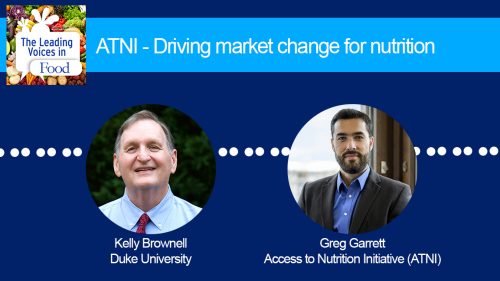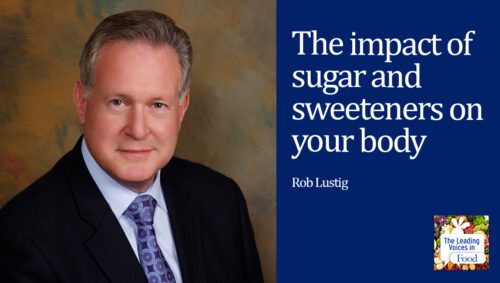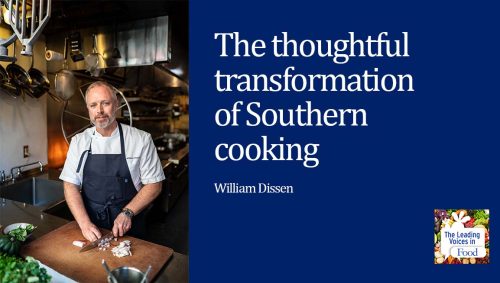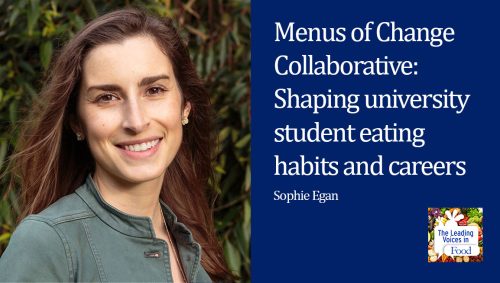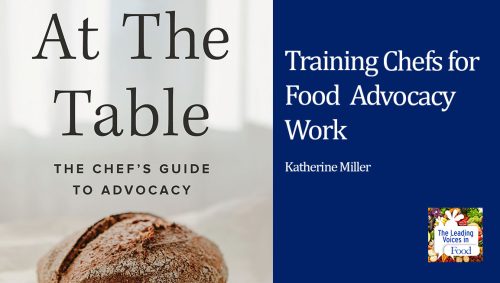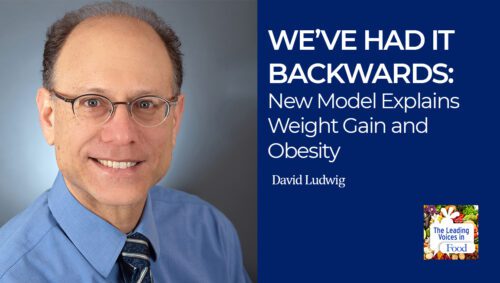The Leading Voices in Food
E129: An Eating Addiction Revealed – Susan Burton on Empty
People who fight against anorexia and binge eating also struggle with secrecy, isolation and shame. Eating disorders such as these are incredibly powerful and relentless forces in the lives of an estimated 70 million people both male and female, by the way, according to the National Eating Disorders Association. For almost 30 years, author and storyteller Susan Burton of the hugely popular public radio program “This American Life” hid her obsession with food and the secret life of compulsive eating and starving that dominated her adolescence. She recently published a memoir entitled “Empty” as a way to confront her disordered eating and claim the recovery that comes from telling her story.
Subscribe: Apple Podcasts | TuneIN | YouTube Music | SoundCloud | PocketCasts | Radio Public
Tags: Addiction & Food | Chefs & Food Writers | Eating Disorders |
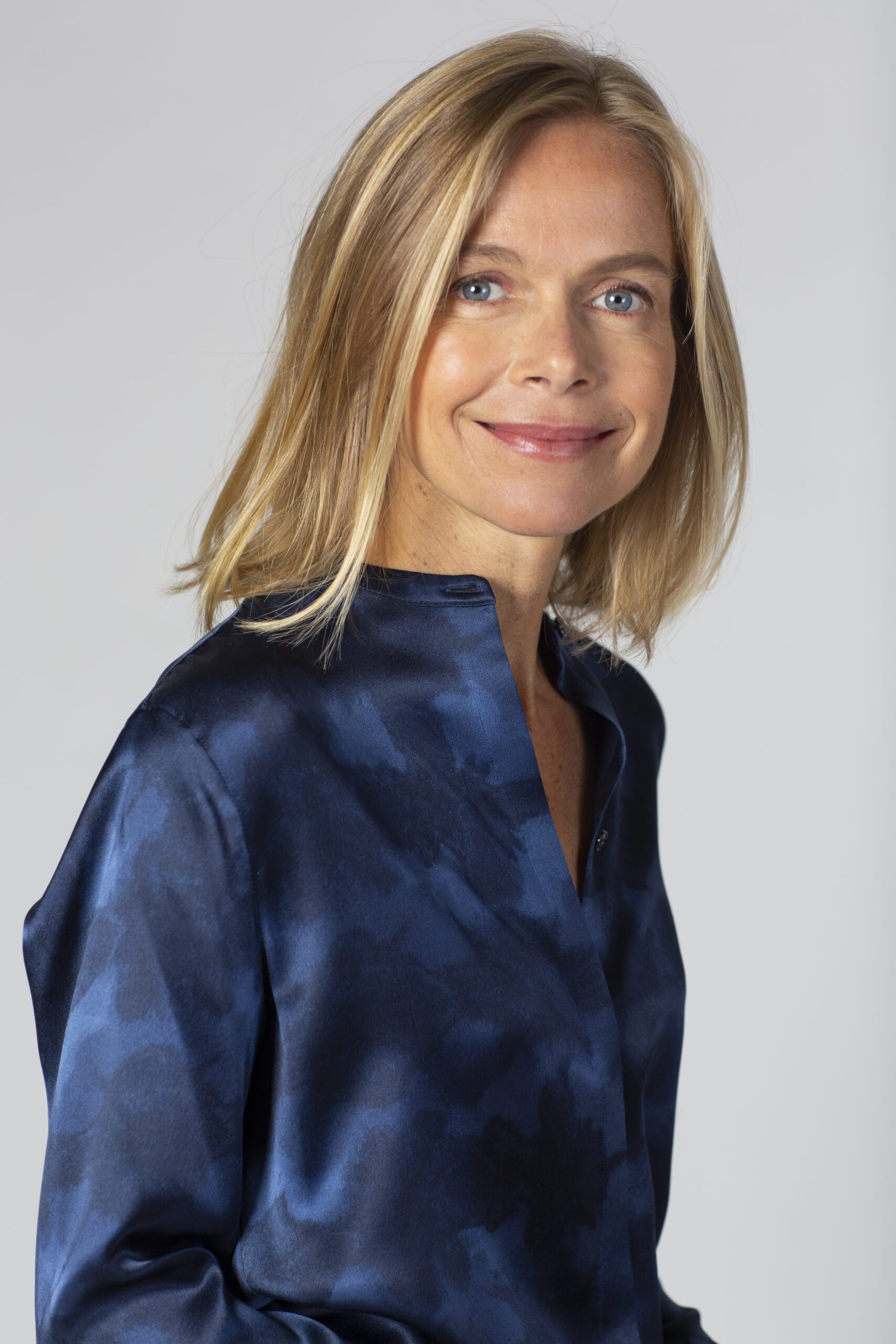
Susan Burton is an editor at This American Life. Her writing has appeared in The New York Times Magazine, Slate, The New Yorker, and others, and she is a former editor of Harper’s. The film Unaccompanied Minors is based on one of her personal essays. She lives in Brooklyn with her husband and their two sons. Her memoir book Empty was published by Random House.
Interview Summary
So having worked in this area for a long time, I can’t help but admire your courage and the vulnerability in writing such an intimate book about the struggle of your eating disorders.
I wrote it because I really found that I could write no other book. I started out trying to write a cultural history of the teenage girl, a book that would have intertwined that history with the story of my own adolescence but almost from the moment I sat down to write the first draft, this other story about the eating disorder that started in adolescence came out and was insistent. And I really resisted it for a long time. I was scared to write it but in the end, it was the thing that had the most urgency. It was so clear to me it was the story I needed to tell.
I know hearing the story will do a lot of informing to people about eating disorders and of the ravages that it can have on people. And then also give comfort to people who might feel comfortable coming out and telling their story, given that you have. So let’s start at the beginning. How did your struggle with eating issues begin and what did it look like throughout your life?
Among the first stories that my mother tells about me are stories of my infancy, when I was a child who didn’t like to eat. So it was always something that was in kind of the background, that Susan has the strange relationship with food. I was an unusually picky kid at the birthday party. I didn’t want pizza. I wanted milk instead of Coke. But the way I felt about these preferences and food fears was I think sort of more important than the fears themselves. I had a lot of shame and unease with the fact that I ate in a way that was different from the rest of my friends.
So fast forward to maybe age nine which is when I went on my first diet. I wanted to look like another little girl at my swimming pool. This little girl, her legs were so thin that the legs of her swimsuit kind of gaped around them and that was what I wanted. I can’t say exactly why I wanted that but I went on a diet for a week and my mother noticed immediately. She said, “You don’t look like yourself. You’re too thin.” And that was sort of the last time for some years that I intentionally tried to lose weight. But then midway through my adolescence, my parents had divorced. I was sort of struggling to define who I was as many of us are in adolescence and also dealing with kind of the fallout of the divorce and that trauma. I unintentionally lost a couple of pounds in a stomach bug. And I found I had a feeling of lightness that I loved and I sought more of that feeling that I craved. And within a few months, I was anorexic and within a few months after that, I’d started binge eating which is a really typical trajectory: the binging following restriction, though I didn’t know that at the time. But that sort of sent me into decades of using eating or not eating to manage uncomfortable feeling.
Wow, that’s very powerful. So I think the friends and families of people struggling with eating disorders would benefit from hearing you explain something. Why is it so difficult to talk about this kind of a personal struggle and why is telling the story so important to recovery and survival?
It’s such a good question. There’s so much shame associated with eating disorders. And I think because a lot of us who have them blame ourselves. Eating disorders are illnesses. They’re illnesses that can be treated. I was having a conversation with a fellow eating disordered woman the other day and she was saying, “You know, if you were depressed nobody would tell you, ‘get over the depression yourself, treat the depression yourself, it’s your fault.'” Actually, there probably are people who’ve had that message and probably times in our history when we have treated depression that way. But the point is that a lot of us blame ourselves for eating disorders and with, I think, especially binging, bulimia, any of the disorders that involve eating large quantities of food, there’s a huge amount of shame, culturally, involved with the feeling of too much, of greed, of overeating. I think there’s more shame associated with those than there is with anorexia, which is not to say that there’s not also shame in anorexia but I do think that excess carries a particular kind of shame.
I agree with you that public education can be so important in this context because you’re absolutely right. For somebody who struggles with eating less than ordinary, people say, well, how hard can it be just eat a little bit more? And then of course, people with binge eating issues, people say, “Well, why can’t you just eat what everybody else eats?” And they don’t realize how powerful and driven the impulses are that kind of drive this in the first place. And I think some more public education like what your book will do can be really helpful.
I think that that was among my motivations for writing it. I was so desperate for people to understand what this felt like. That it was a compulsion. That it’s not easy to wrest yourself from.
So what did it take to motivate you to begin writing this memoir?
I think part of it was the feeling that this was the most important story I could tell but what I didn’t realize until I was through writing it was that the most important thing that writing the book would do would get me to start talking about it. Because even though I told my story on the pages of this manuscript, I still wasn’t really talking about it with the people closest to me in my life, with the people kind of at the next outer circle of my life. I wasn’t even in therapy until I had a finished draft of the manuscript. So the book is the telling of the story and it’s my own attempt to understand what happened. But talking and talking about it with others is I think the next step in my recovery and that’s where I am now, talking about my story with others and trying to understand it that way.
We’ll come back to the issue in just a moment of recovery and whether it’s ever complete. But let me ask another question first. So some people think about eating disorders in the context of addiction and believe that curing the disease might look the way that alcoholics might tackle their addiction, let’s say. So you’ve made that point that this analogy misses an important way of looking at things and that the process of recovery is never done. How can you explain please?
For a long time, I was always drawn to stories of addiction because I experienced my binging as an addiction and I thought that that sort of explained the illness. But my solution then, as a young woman in my twenties, was to essentially quit food. Was to become anorexic, which is not a solution. Which is perilous. Which is delusional. Which I was lucky to emerge from into the healthy woman that I did. So you can’t quit food. Food is everywhere. We need food for nourishment. We want food for pleasure. Food is something that we can experience with others.
And so we have to find a way to live with this substance and maybe even learn to take pleasure with this thing that we feared might destroy us. But I will say and maybe this is leading to where you’re going, for a long time, I was really invested in this idea that my binging had been an addiction and I wanted to sort of tease it out and figure out was the addiction to the substance? Was the addiction to the behavior? And those questions are still of great interest to me. But I think where I am in my process now is I’m extremely interested in, okay, well, what does recovery look like and what does that mean in terms of an eating disorder? What do the academic journals say it means and what do people who’ve been there say it means? That’s the question that’s really present for me right now.
So do you believe that recovery can ever be complete?
I mean, it depends on how we define complete. When I say it’s a question I’m actively puzzling through, I really am. I think at the beginning of my work in therapy, I would have said I just want to think about food like a normal person. You know? I don’t want to be so preoccupied by it. But you know, then as I got a little further into the process I realized, well, recovery is not just about changing my relationship to food, it’s about looking at all the reasons that I use food in the first place and developing all of these other ways of coping that I’ve neglected, so that’s part of my recovery too. Will I ever wake up in the morning and eat in sort of an intuitive way? I don’t know. Like I said, one of the first questions you asked me was about trajectory with eating stuff and from a young age, I was always weird about food. So if we think of the etymology of the word recovery, it means sort of a return, or going back. And I think I’m trying to make something new. I feel like it’s probably not an answer to your question. I mean, I’m actually curious about what you think the answer is. Is a complete recovery ever possible?
It differs from person to person and some people may feel it’s behind them and all as well and then behave as such and everything is okay. And other people, it’s a constant struggle and they have to really remain on top of things. So it probably varies a lot from person to person but it’s interesting that you brought that up because I do believe it’s a fascinating issue. Something else you mentioned a moment ago I find fascinating as well, back to the addiction topics. You said you weren’t certain if you felt addicted to the food or the behavior. There’s some interesting nuance there. Could you explain that?
This is something where I am coming at this very much as a lay person reading stuff in Google scholar. So take it as you will. But as I understand it, there’s somewhat of a debate in the field whether the addiction is to the foods themselves, to say sugar, to highly processed foods, or is it a behavioral addiction more in the mode of gambling or shopping? So there’s a neurological response of a dopamine hit but is that coming from the repetition of the behavior, or is it something that’s coming from the food itself? I’ll say for my part, when I was in the throes of binging, I felt something physiological. Like I felt like I needed sugar, I needed it to lift me up. I needed it to move and in that sense, it felt like my body was craving something. But at the same time, I also recognize that the way that a binge often followed a disappointment or just a feeling of unease, that’s maybe more of a behavioral compulsion or pattern.
Of course, there could be a combination of the two. Biological things get turned into behaviors that then become compulsive and driven themselves. So, you know, there’s work on food and addiction now that I know you’re aware of and that combined with your personal experience really paints a fascinating picture. And boy, is there indeed for more people to be looking into this. Let’s change tracks here just a moment. So you’re a parent now of two sons. Congratulations.
Thank you.
How did becoming a parent add a new dimension to your struggles with food?
I was very aware that I didn’t want to repeat some of the things that I’d grown up with. So for instance, I have a very vivid memory of back to school shopping with my grandmother when it was August before I was going to enter fifth grade and my sister and I were in the little dressing room and I was trying out a plaid kilt. And I remember my grandmother clapped her hands together and she said, “I’m so glad I have thin grandchildren.” And that was kind of the family we grew up in. And there was a lot of emphasis on body size and on being thin. So I knew that I didn’t want to send them messages like that. But what I didn’t realize was that I was really still locked inside anorexia in a way that I was kind of blind to for much of their childhoods and I was also anxious and fearful about food in a way that I’m sure that I transmitted to them without being totally aware of it. So now my focus is on being able to talk about these things openly because secrecy was so harmful to me in terms of my eating disorder but also in my family of origin, there was a lot of secrecy that I think perpetuated my own secrecy. So being able to talk about these things together has been a really wonderful and healthy outcome of telling my story.


